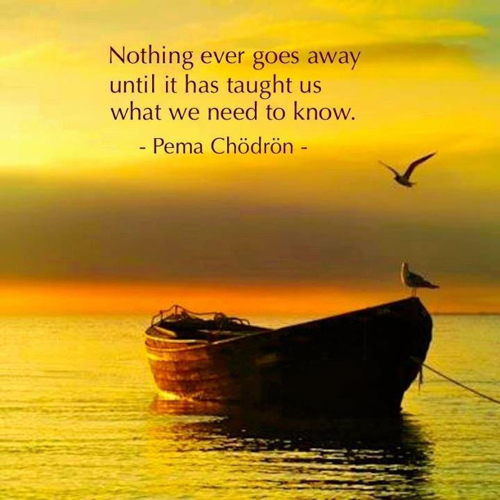In our last blog post we listed 12 words to describe taiji (tai chi). The first on that list was awareness – a word that may not have been on many people’s list.
Why awareness?
Taiji practice is about knowing yourself, and knowing others.
The inward search as essential to enlightenment and happiness, summarized in the Greek maxim “know thyself,” is a central tenet of all of the world’s major philosophical and spiritual traditions. In the little dao of taiji, meditation and form practice are exercises in knowing ourselves, in learning where we are unbalanced, mentally and physically, and striving to restore that balance. In push-hands we learn more about our own balance, but also learn to sense the energy and intention of others, an essential skill in any martial art. The greatest of the professional fighters all have this in common: they study their opponents extensively, and during engagement they all have the ability to quickly sense the timing, rhythm, strategy and intention of their opponents and to adapt their own as necessary, dictating how and where the engagement happens. As Sun Tzu said,
If you know the enemy and know yourself, you need not fear the result of a hundred battles.
All of this is fundamentally about awareness. Awareness is both the path and the goal. Everything hinges on awareness. The first step, of course, is to know that you don’t know. Only then can you begin the journey. To then keep a beginner’s mind is essential to improvement – to constantly heightening awareness of oneself and others.
Anthony de Mello, a priest and spiritual writer, equated spirituality with awareness and, as spiritual growth is essential to happiness and likely paraphrasing Socrates, rather resolutely stated that “the unaware life is not worth living.” One of his books is titled Awareness – I recommend it for any interested in pursuing these ideas.
Rumi – a meditation on awareness for daily life
Meditation practice is pure awareness training – learning to become aware of one’s own thoughts and emotions, and how our own thoughts and reactions to the world determine our happiness. It is a gradual awakening to who we are, not always a painless experience :-). I guess I should rather say that it can be those things. As with any path, the ego can be a cunningly deceptive adversary, leading one to seek pleasure and self-aggrandizement in service to itself. A good teacher can save many years of training by pointing the way here.
For years I have shared this Rumi poem with our introductory class as a dharma talk and meditation.[1]
The Guest House
This being human is a guest house.
Every morning a new arrival.
A joy, a depression, a meanness,
some momentary awareness comes
as an unexpected visitor.
Welcome and entertain them all!
Even if they are a crowd of sorrows,
who violently sweep your house
empty of its furniture,
still, treat each guest honorably.
He may be clearing you out
for some new delight.
The dark thought, the shame, the malice.
meet them at the door laughing and invite them in.
Be grateful for whatever comes.
because each has been sent
as a guide from beyond.
– from Rumi: Selected Poems, trans Coleman Barks with John Moynce, A. J. Arberry, Reynold Nicholson (Penguin Books, 2004)
There is a wealth of wisdom packed in this little poem. It is a primer on the fundamental reality of yin/yang duality in human experience – how reversal is the way of the Dao, how the bad thing is not different from the good. It is also a reminder of gratitude for all of life’s experiences – the good times make life a joy, the difficulties and painful times make us stronger and wiser. It’s all good.
Everything, though, is dependent on awareness – awareness of these fundamental realities, and awareness of our reactions to them. To “welcome and entertain” the dark thoughts, and to “meet them at the door laughing” requires that one first be aware of one’s emotions, as opposed to allowing them to automatically control and dictate one’s response to life occurrences. The “I” must observe and be aware of the “me” before you can welcome and meet the negative thoughts at the door, laughing. And kind-hearted laughter is a sure and healthy sign of awareness/recognition of reality.
I encourage this of awareness of one’s emotions, and their effect on one’s condition and behavior, as one contemplation during sitting meditation in class. And to take practice into daily life, which is the real goal, our “homework” is to practice heightened awareness of emotions during the week, to meet them at the door, laughing. One really needn’t “do” anything – pure awareness of oneself, and the reality of daily life, is usually sufficient to act naturally and in a manner nurturing peacefulness and contentment. To quote Confucious:
If you look into your own heart, and you find nothing wrong there, what is there to worry about? What is there to fear?

[1] With gratitude to Donna Gonzalez, who first introduced me to this poem
[WPSM_COLORBOX id=890]
